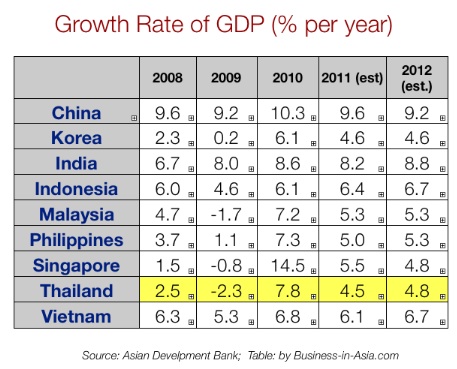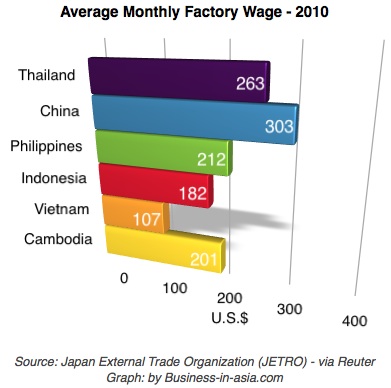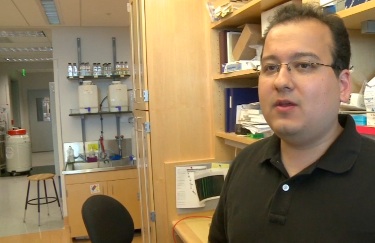
Why Science and Engineering?
- Why Thailand Must Get Education Reform Right?
 Following the recent Reuters News article about Thailand's system of education published on May 30, 2011; there has been a growing discussion about the future of education in Thailand although so far much of this is in the English and not the Thai language press who seemingly has failed to pick-up this story. According to government figures, Thailand is one of the countries in Southeast Asia that allocates the highest education budget in its National Plan. According to the same article, Thailand is already among the world's top education spenders relative to its size, allocating roughly 20 percent of its annual budget to education, according to the central bank. The country spent the equivalent of 4 percent of GDP on education in 2009, above Singapore's 3.1 percent, according to the Swiss-based Institute of Management Development (IMD), but Singapore ranks 13th in education performance and Thailand 47th. Why the disconnect? Literacy in Thailand has been consistently high since the 1970s and was 94 percent in 2010. But while about 71 percent of students go on to secondary school in the country of 67 million people, just 18 percent finish college, according to Direk Patmasiriwat, a researcher at Thailand Development Research Institute, a think tank. And a Thai college degree is no sure ticket to success. In 2010 rankings of world universities by Quacquarelli Symonds, a provider of guides to higher education, Thailand's top school, Chulalongkorn University, was ranked 180. Compare that to the University of Hong Kong's ranking of 23 or National University of Singapore's 31, reported Reuter News.
"The country's GDP has risen disproportionately to wage growth. It is one major cause of discontent," said Somkiat Tangkitvanich, an economist at Thailand Development Research Institute. "That's partly because educational training available does not match skill sets needed to succeed in the more dynamic labor market today. "An incentive system for teachers is also regarded as a problem, placing a greater premium on administrative duties than student performance, and giving little reason -- or training -- to move beyond basic rote-learning teaching methods. Analysts attribute the inability to overhaul education to bureaucratic inertia, a deficit of ideas on how to improve the curriculum and poor teacher recruitment and training. When an education reform committee proposed English as Thailand's second official language last July to boost its economy and foster a more global outlook, the Education Ministry rejected the idea, saying it could create "misunderstandings" that Thailand had been colonized. This is not an issue in Vietnam, who because of its history ought to have more reasons to cite nationalism. Thailand is steadily losing out in world economic competition not only internationally but regionally. Singapore, Malaysia and even in some areas Vietnam and Indonesia are increasing their GDP faster and continuing to move upstream in terms of production while Thailand seems rooted in its agricultural and relatively lower tech manufacturing past or consumed in issues of nationalism that benefit no one, least of all Thais. According to the Bangkok Post, in only the last 5 years, Singapore has doubled its per capita GDP. In the same time frame, Malaysia has increased its per capita GDP by almost 50%, or 7 times faster than Thailand, while Indonesia has increased its per capita GDP 5 times faster than Thailand. Thailand's per capita GDP growth has languished at around 7.5% over the entire same five-year period. Thailand's ambition to be an industrial export powerhouse in the region is being seriously challenged. Singapore and Malaysia have secured almost double Thailand's market share for exported industrial goods in ASEAN. Thailand will soon be overtaken by Indonesia which seemed way behind Thailand but now has a market share of 14.4 percent compared to Thailand's 14.6 percent. From a leading economy in the region, Thailand's position is steadily eroding. Science, Technology, Engineering and English
Further, programs will need to be less confucian in their style of learning (The teacher speaks and the student listens and notes.) and more interactive and collegial with students interacting with the professor and with each other to better understand and be able to discuss and think in new ways. Thailand has issues that much of the developing world would love to have. Let's be honest. Life is good here for most people. People mostly have enough to eat. Thailand is one of the few developing countries in the world that is a net exporter of food. Thailand is a top three producer in the world of rice, rubber, pineapples and many other food products. Thailand is also a top producer of electronics products and a regional base for the automotive industry. The growth of Thailand's population is under control in terms and not increasing at unsustainable rates that are causing clear issues for water, food and environmental management as is the case in China, India, Indonesia, the Philippines and elsewhere. Considering Thailand's previous reputation as being "pro business" in the past, Thailand's failure to effectively modernize its education and to develop the human resources required by business is even more a surprise. Thailand is simply not producing what business in the 21st Century demands - more and better trained scientists, engineers and business professionals. Continuing education and innovation are the keys to advancement. Scientists and Engineers are problem-solvers. They are the professionals who will help the country in innovation, creation of new products, services and industries that will bring jobs in the future. Scientists in various fields, such as agriculture, aqua science, biochemistry, bioinformatics, environmental science or food technology & processing, for example; can help improve the country's crop production, cure human or animal sickness, enhance the look, taste and feel of agriculture products and improve alternative energy usage, clean and green tech and so on. In the U.S., there is a campaign to promote STEM education (STEM: a acronym stands for Science, Technology, Engineering, and Mathematics). STEM fields are critical to America's economic recovery and its economic competitiveness in the future and President Obama and his administration have advocated them even more strenuously than did his predecessor President George W. Bush. It is a nationwide effort and it involves private companies, universities, foundations, nonprofits, and science and engineering societies to work with the government and try to improve student performance in the STEM subjects. We are not saying that the US is getting it all correct in this effort but it is a high level exercise with focus at the highest political levels and in the boardrooms and at the dinner tables around America. These subjects, evidently, based on information supplied by many top US universities, are not only important to America. They are important to the world and Asian students who often go to US Universities often excel in and are often at the top of their classes in studying in these fields.
We note this case because Charles was born in Thailand and his first language was Thai. He started his schooling at Churairat school on Ploenchit Road in Bangkok but then moved beyond the Thai education system to be educated at the UN International School in Vietnam and the International School of Beijing (ISB) in China. Later he returned to the US for high school studies and participated for four years in the extra curricula Intel Mentors program in Portland, Oregon which provides opportunities very different than in Thailand for young people to work with practitioners in scientific, medical, engineering and other labs outside of school hours. Charles love of science and appreciation for its effect on society was largely nurtured during his years in the labs of the Casey Eye Institute at Oregon Health Science University and in advanced programs at John Hopkins, Reed College and Portland State University taken outside his normal classes. After graduating from Dartmouth University in New Hampshire in Biology, Charles renewed his ties with Thailand and lived and worked in Thailand during 2008 operating a lab for Delphi Health Services in Thailand's Science Park in Patumthanee. He was the first Thai scientist to patent a method in predictive DNA assays to identify diabetes in Thai patients. Further, during this period Charles got a direct first hand opportunity to meet and work with Thai University Bachelor, Master and PhD students and with Thai medical and research technicians. He further experienced first-hand Thai government efforts to encourage science and Thai business response to such efforts. We note Charles because the fact that there are many Thai overseas like Charles indicates that the challenge for Thailand is not native intelligence but more training and the need to supplement areas needing improvement in the Thai education system. It also argues that collaboration with business in programs like the Intel Mentors Program, use of advance placement courses in math and science and creative exposure of high school students to more advanced math and science programs linked to business all need to be part of the solution. Further, it argues that if Thailand is to better compete with other members of ASEAN like Malaysia and Singapore and also with bigger rivals like China that Thailand ought to try harder to lure these individuals back home as China, India, Singapore and other nations are doing so as to utilize them to both help in education and in research. Thailand faces instructional problems such as substandard teachers and trainers, as well as a mismatch between the skills of its graduates and the demands of its labor market. The results are that the current system continues to graduate Thai students without the in-depth scientific and engineering skills, lacking in aspiration, with poor soft skills like working in teams, actively participating in groups and with poor English language skills to communicate with the world. Thailand badly needs education reform. Further it must get it right so that the government lives up to the requirement to fully develop the next generation and develop the countries intellectual capital in terms of innovation, math and science so that Thailand moves from being solely a producer of commodities (rice, rubber, agricultural products of all kinds) and moves into the value-added and higher intellect intensive industries that will be needed in the 21st and 22nd Centuries. About the Author: Christopher W. Runckel, a former senior US diplomat who served in many counties in Asia, is a graduate of the University of Oregon and Lewis and Clark Law School. He served as Deputy General Counsel of President Gerald Ford’s Presidential Clemency Board. Mr. Runckel is the principal and founder of Runckel & Associates, a Portland, Oregon based consulting company that assists businesses expand business opportunities in Asia. (www.business-in-asia.com) Until April of 1999, Mr. Runckel was Minister-Counselor of the US Embassy in Beijing, China. Mr. Runckel lived and worked in Thailand for over six years. He was the first permanently assigned U.S. diplomat to return to Vietnam after the Vietnam War. In 1997, he was awarded the U.S. Department of States highest award for service, the Distinguished Honor Award, for his contribution to improving U.S.-Vietnam relations. |


